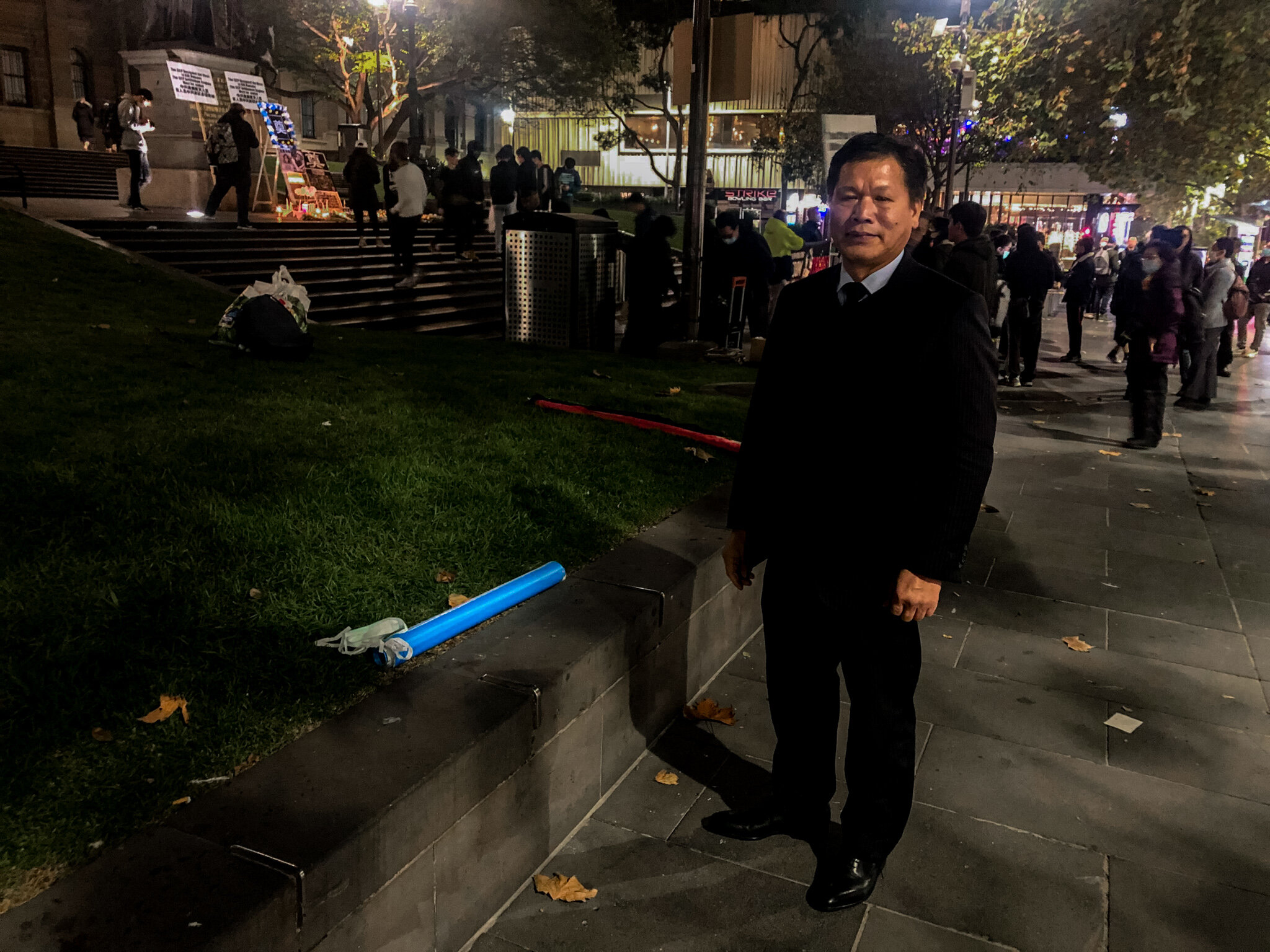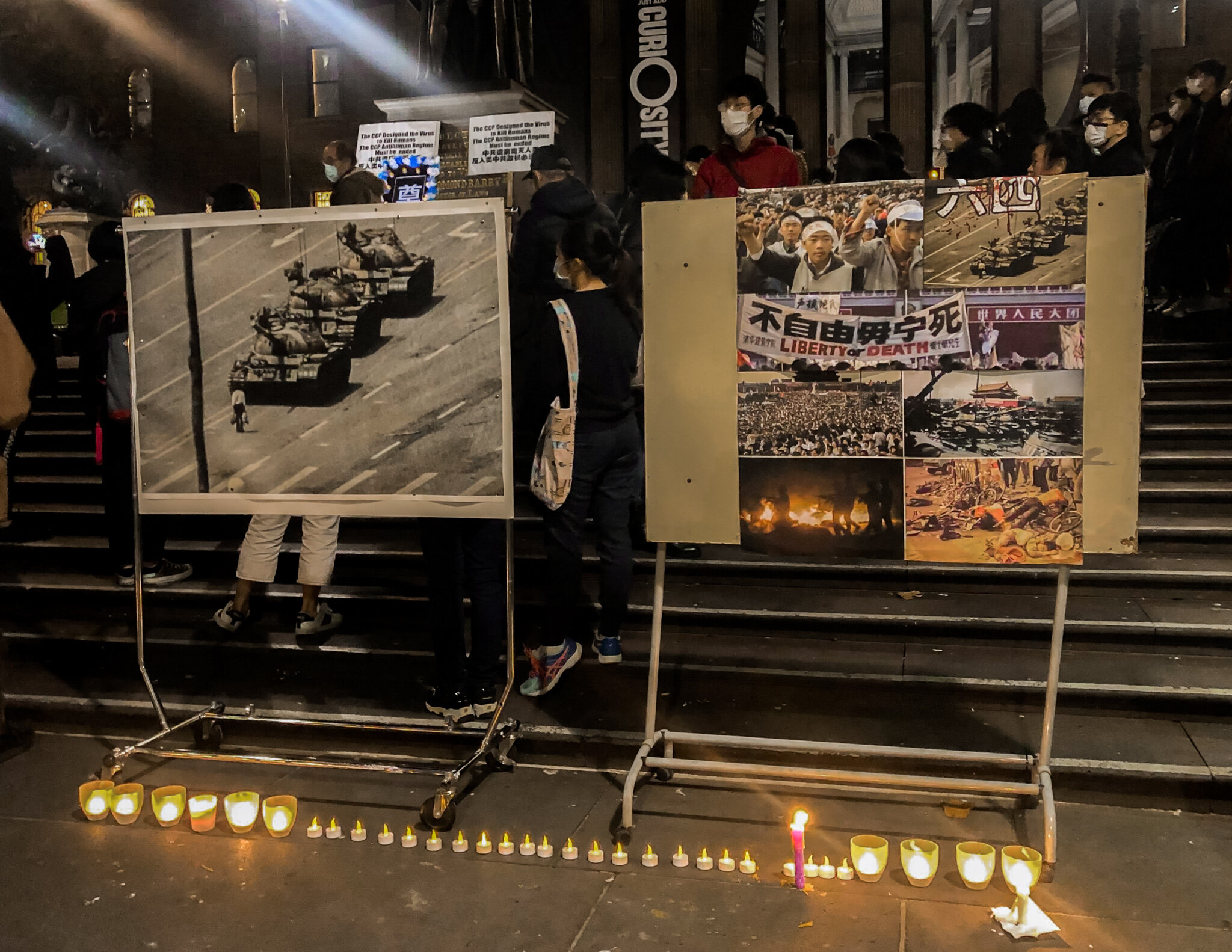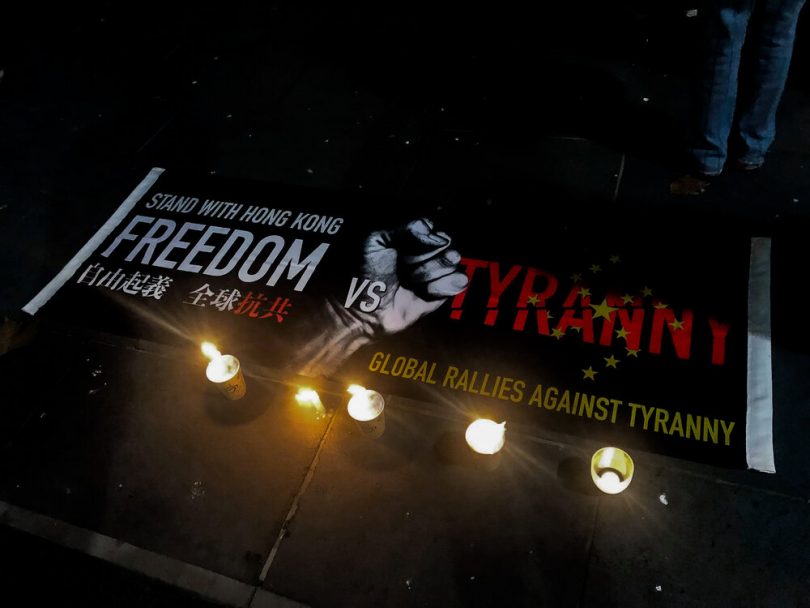The Australia-China relationship is more fraught than ever, with tensions emerging over everything from international students to barley prices.
This week on City Journal Weekly, Marco Holden Jeffery and Oliver Lees present a special China Focus program, looking at the key issues between Australia and China on the international stage in the preceding weeks.
First up, we speak to Frank Ruanjie, the managing director of the Tiananmen Times and an organiser of the recent memorial vigil in Melbourne commemorating those who died in the Tiananmen Square incident. The 31st anniversary vigil became a convergence point for all sorts of discontent with the Chinese Communist Party.
Later in the program we speak to Zach Eggleston, the head of communications for the Australia China Business Council Victoria, about the controversy surrounding the Belt and Road Initiative and what Victoria’s involvement in the $1.5 trillion international infrastructure project actually means for Victorians.
You can find the program in full embedded above.
Victorian State Library lit by candlelight as hundreds remember heroes and victims of Tiananmen Square protests
Hundreds gathered outside the Victorian State Library on Thursday to commemorate the Tiananmen Square crackdown 31 years ago and protest the Chinese Communist Party rule.
Rally organiser Frank Ruanjie was one of the students gathered at Tiananmen Square on June 4th 1989, when the Chinese government used military force to disperse the protests advocating for greater democratic freedoms.
“We come here to commemorate the heroes and the victims of the Tiananmen Square protest,” Mr Ruanjie said.
“Every year we remember, and this was the biggest one yet.”
The Chinese government estimated the death toll of the original Tiananmen Square protest to be around 200, but 2017 official documents declassified by the UK government suggest the real figure could be as high as 10,000.
Mr Ruanjie was one of several speakers who criticized the Chinese government on a range of issues at the vigil on Thursday – from the suppression of democratic protests in Hong Kong, incarceration of Uyghur Muslims in Xinjiang and the handling of the coronavirus outbreak.

Frank Ruanjie after the rally, June 4 2020. Ruanjie has been advocating for greater democratic freedom In China for more than 30 years. Photo by Oliver Lees.
Mr Ruanjie said the Chinese Communist Party’s recent approval of national security laws in Hong Kong is a further example of deteriorating freedoms within China.
These laws were designed to tackle secession, subversion, terrorism and foreign interference.
“Hong Kong will become the same as the mainland, they will lose freedom of speech, freedom of association and freedom of religion,” Mr Ruanjie said.
This year, for the first time in 30 years, the annual memorial was banned in Hong Kong, with authorities saying the risk of spreading the coronavirus was too high.
After airing a short documentary, those carrying candles placed them at the base of a makeshift vigil set up in front of the Sir Redmond Barry statue.
At exactly 8.09pm, Mr Ruanjie led the crowd in 64 seconds of silence.

The most famous image from the Tiananmen Square student protests of 1989, ‘Tank Man’, displayed on the steps of the Victorian State Library, June 4 2020. Photo by Oliver Lees.
Several organisers also used the vigil to warn the Victorian government of engaging with China, urging those in attendance to sign a petition in opposition of state premier Daniel Andrews’ decision to join the Belt and Road Initiative.
The economic initiative has seen China create partnerships with more than 60 states around the world to develop infrastructure, with Beijing maintaining the position that the initiative is mutually beneficial.
Mr Ruanjie said the Victorian Government should be hesitant about the arrangement.
“The Communist Party wants to export their corruption and damage the democratic system, it would be wise of Daniel Andrews to reconsider.”
Oliver Lees, Swanston Gazette
Victoria on the Belt and Road – but what does it mean?
The Victorian government’s memorandum of understanding with China regarding the Belt and Road Initiative has drawn recent public ire from politicians and commentators alike.
Prime Minister Scott Morrison urged Premier Daniel Andrews last Thursday to back down from the deal, claiming the agreement wasn’t “consistent with Australia’s national interest”.
But what has the Chinese government’s signature $1.5 trillion foreign infrastructure project actually meant for Victorians?
The memorandum of understanding was signed in 2018 to encourage investment from China not only in the Andrews government’s major state-wide infrastructure overhaul, but also in biotechnology, agriculture, food and a number of other industries.
But Australia China Business Council Victoria head of communications Zach Eggleston told City Journal the BRI hadn’t eventuated in any actual investment or projects.
“Nothing has happened because of the BRI that wouldn’t have happened because of general trade and investment,” he said.

Prime Minister Scott Morrison recently criticised Victorian Premier Daniel Andrews for his decision to sign up to China’s Belt and Road Initiative. Photo by Shealah Craighead
Mr Eggleston said the BRI was more of a symbolic gesture of cooperation between Victoria and China.
“Victoria still has some of the lowest economic ties out of anywhere in Australia,” he said.
“At the end of the day, it doesn’t mean much – I don’t see any other states signing up and I don’t think there’s any risk of China having any sort of say in the Victorian government.”
But Mr Eggleston conceded that it was important to have “national unity” on foreign policy decisions.
The Turnbull government had already declined to sign up to the BRI on a national level, so China was now targeting state governments to undermine the federal decision.
“They did two separate benefits analyses into the BRI and they didn’t see any benefits that they didn’t already get from regular trade and investments,” Mr Eggleston said.
And he understood concern from “China hawks” who might see the memorandum of understanding as a threat to Australian national security.
“The BRI is red meat to China hawks, what it symbolises is Chinese global control,” he said.
Marco Holden Jeffery, City Journal





